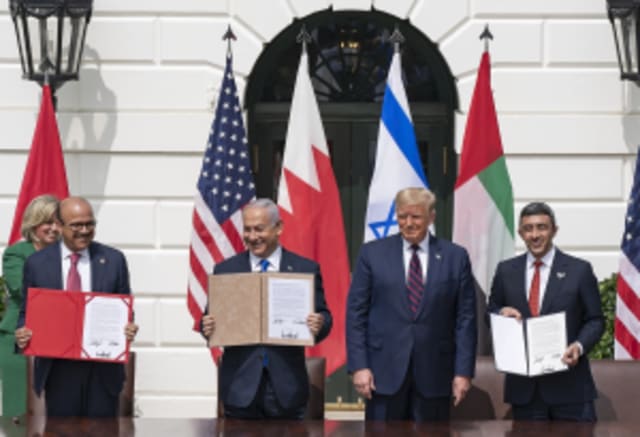Back to the table: US and Iran resume indirect nuclear talks in Oman

Nuclear talks between the United States and Iran began on Saturday in Oman. These are indirect talks being conducted through Omani mediators. Representing the U.S. in the talks is President Donald Trump’s envoy, Steve Witkoff, while Iran is represented by Iranian Foreign Minister Abbas Araghchi.
Meanwhile, an Omani source told Reuters today that "the Iran-U.S. talks are intended to ease regional tensions, facilitate prisoner exchanges, and reach limited agreements for sanction relief — in exchange for control over Iran's nuclear program."
Media outlets affiliated with the Iranian regime criticized the United States today. According to reports in Iran, "The Americans are wasting time due to internal disagreements, spreading bizarre claims in the media."
On the other hand, U.S. President Trump stated last night that he wants "Iran to be a prosperous country," but reiterated his position that "Iran must not be allowed to possess nuclear weapons."
Steve Witkoff, the head of the American delegation and Trump’s special envoy, said in an interview with The Wall Street Journal that the U.S.'s red line is that Iran must not have the capability to develop nuclear weapons.
Witkoff added that Washington's opening demand is the dismantling of Iran’s nuclear program, though compromises may be necessary to reach an agreement.
At the same time, a member of the Saudi royal family shared their expectations for the U.S.-Iran negotiations in a conversation with Kan News: “If Iran truly opens its nuclear facilities to full inspection, and also abandons its proxies in the region, avoiding war — that would be a good outcome.”
Senior Iranian officials reportedly pressured Iran’s Supreme Leader, Ali Khamenei, to agree to negotiate with the U.S. over the nuclear program — fearing that the alternative could lead to the fall of the regime, according to a report published yesterday in The New York Times. Khamenei agreed to discuss the nuclear issue, but ruled out any talks regarding the country's missile program.
According to the report, during a meeting held last month, Iranian officials discussed with Khamenei the letter sent by Trump requesting negotiations on the nuclear program. At that meeting, Iranian President Masoud Pezeshkian and other senior officials urged Khamenei to allow talks with the U.S. government. Until recently, Khamenei had dismissed the idea of negotiations, publicly calling the move "idiotic."
The message from the Iranian officials to Khamenei was clear: allow Tehran to negotiate with Washington — even directly — because otherwise the Islamic Republic's regime could collapse. The officials explained to Khamenei that the Iranian regime would not be able to withstand a war while also dealing with an economic crisis and shortages of electricity, water, and gas.
They further warned Khamenei that the threat of war with the U.S. and Israel is very serious, and in such a scenario, an attack on nuclear facilities would be inevitable. According to the report, the officials told Khamenei that in the event of war, Iran would have to respond, potentially leading to a broader conflict.
Following this urgent meeting and the explanations provided, Khamenei relented and allowed Iranian officials to engage in talks with the Americans — albeit only indirectly and through intermediaries — until trust in the process is built. On March 28, Khamenei gave his first official approval for Iran’s willingness to hold talks with the U.S.
Ram Brandts is a correspondent for KAN 11 news.














